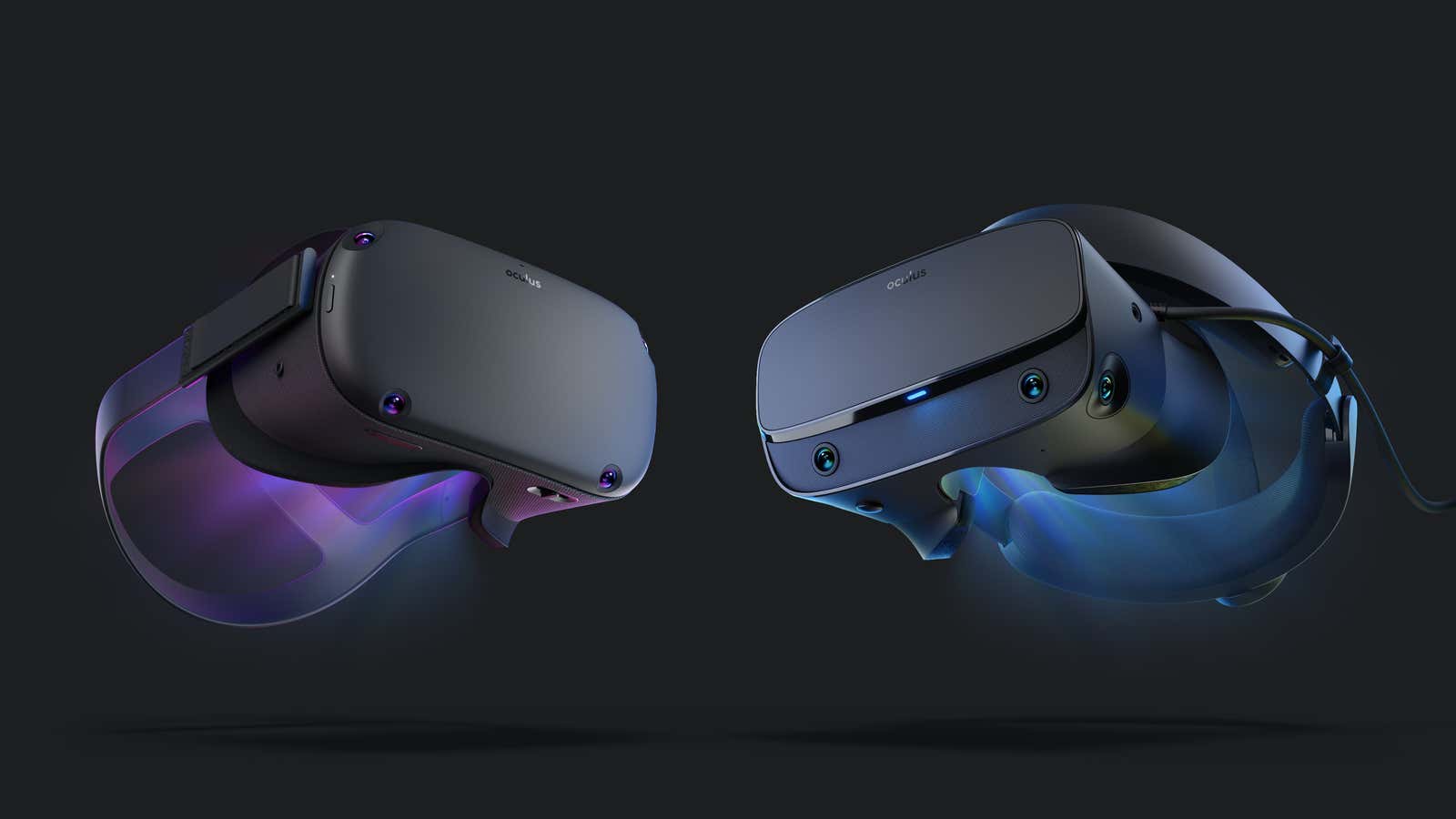At the Facebook F8 developer conference today, CEO Mark Zuckerberg announced that Oculus will start shipping two new virtual-reality headsets, the Oculus Rift S and Oculus Quest, on May 21. Each will cost $399.
Facebook first dipped its toes into the world of VR when it bought Oculus, then a Kickstarter project, in 2014 for $2 billion. The company released its first headset, the Oculus Rift, roughly three years ago, but the device struggled to find its footing despite a vocal fanbase. After Oculus released the Oculus Go, a standalone headset that doesn’t require a PC to use, headset sales started to tick up, but he perennial question remained: What exactly is there to do in VR?
Facebook seems to be trying to answer this again, once more with hardware, plus some new software ideas. The new Quest is essentially an upgraded Go—a far more powerful standalone device that uses cameras to track the wearer’s position in the real world but comes with the more accurate controllers found on the Rift. The Rift S is the next iteration of the Rift, which still requirers the wearer to be tethered to a high-end gaming PC but offers far higher-quality graphics than the Go or the Quest.
Zuckerberg also hinted at some future uses for the VR headsets, including Oculus for Business, a program to offer enterprise software for VR and headsets for employees. He also mentioned Spark AR, Facebook’s development platform for building augmented-reality programs on top of the real world. It’s not too much of a stretch to see how this could be used with the Oculus, both in business settings, and in social apps like Spaces, Facebook’s attempt to bring itself into the VR world.
But the core uses of VR to date—gaming and consuming video—haven’t seen much change in the past few years. Most VR games still involve the user standing still and flailing their arms at targets coming at them, and most of the video for VR headsets is just 360-degree video that’s actually easier to consume on smartphones.
That could change soon, however: There are games being developed for Oculus and PlayStation VR that could rival the quality and depth of traditional games consoles, including Stormland, Lone Echo 2, and Borderlands 2 VR. Even more games from major publishers are on the horizon. While the content needed to elevate VR beyond a party trick is still forthcoming, Facebook is making sure to be ready for when it does.




